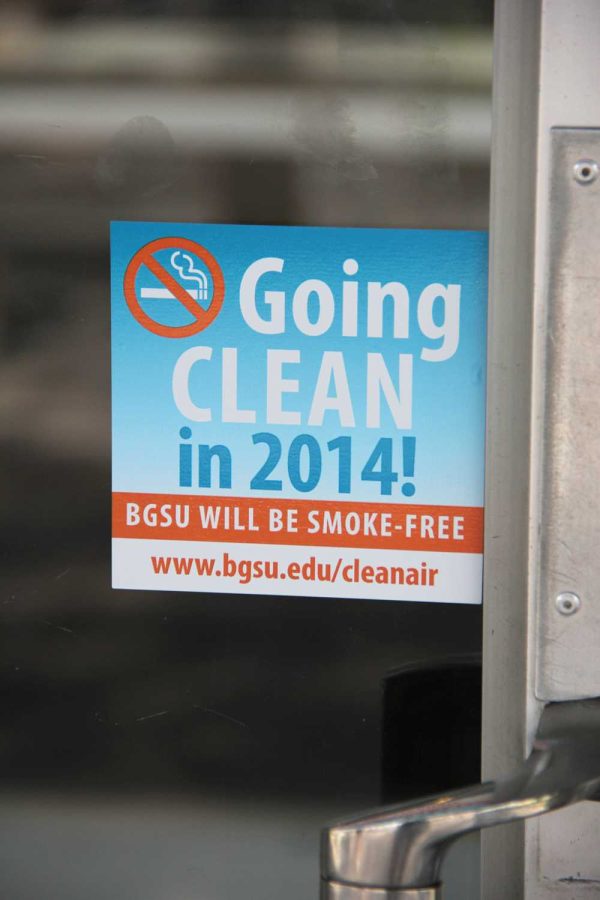The clean air policy was instituted at the beginning of the semester, bringing with it a large amount of support, as well as skepticism.
While the policy has been well received, it will still take some time for everyone to accept it, said Faith Yingling, director of Wellness.
“I think it’s a culture change. Anything like this takes time for anyone,” Yingling said.
Yingling said the feedback she has seen has been positive. She said people with comments about the policy can email [email protected].
Freshman Liz Tiemeyer said she supports the policy, but doesn’t think smokers are responding well.
“I like it, but people still smoke, and nobody’s going to do anything about it,” she said.
Junior Aaron Wells also likes the policy, and said he doesn’t like being exposed to cigarette smoke.
“No one wants to walk through campus and walk through a cloud of smoke,” he said.
Freshman Michael Sanchez is a smoker and feels the clean air policy is harming the campus.
Sanchez said smoking is about more than getting a nicotine fix; it’s about making friends.
“[Smoking is] a social thing. It’s how it is,” he said.
Sanchez said he’s met many of his friends through smoking and feels the University is making it harder for freshmen to make friends that way.
As an adult, Sanchez feels it is his right to smoke and thinks the University shouldn’t take it away.
“We’re all adults here and when you become 18 years old you have the right to use tobacco products,” he said.
If students or faculty do smoke on campus, the policy will be enforced by their peers, meaning it is the responsibility of the faculty and students to report offenses to the University, which will then take action against the offender.
Although this is how the University is enforcing the policy, some students aren’t sure they would enforce it.
If it doesn’t become a big problem, freshman Joel Kissel said he most likely won’t enforce the policy.
Sophomore Adam Knipfer said he tolerates people still smoking on campus, but would prefer people to follow the rules.
Jill Carr, vice president of Student Affairs, says she hasn’t seen anyone smoking on campus.
“From my own personal viewpoint, I think people are trying to comply,” she said.
Carr did hear one student report a breach of the policy. However, she said it wasn’t official, but came up in a conversation inadvertently.
To remind people about the new policy, Yingling said the University has put up signs about it, as well as sending an email to faculty and students.
The biggest issue with the policy has been the location of the smoking receptacles, said Michael Ginsburg, associate dean of students.
He said while new receptacles won’t be added, there are plans to change where they are located.
“As we kind of see where people tend to naturally congregate, we might move some smoking receptacles to locations that are more popular than others,” he said.
Yingling predicts that as the weather gets warmer, more criticisms of the policy will be heard.
“With the weather and all of that, it may be a little hard to tell right now,” she said. “As the weather warms up, it may be easier to see if there are some more challenges ahead.”
When asked about a bursar fee associated with the policy, Yingling denied it, not knowing where the idea originated.
Ginsburg said the University plans to put a FAQ about the fee on the policy’s web page.
Ginsburg is hopeful for the future of the policy and believes students will continue to respond positively to it.
“I think in general our campus is a pretty respectful environment, it always has been,” he said. “I think people understand why the policy has been put into place and whether they agree with it or not are complying with it.”














